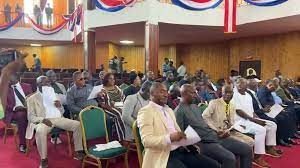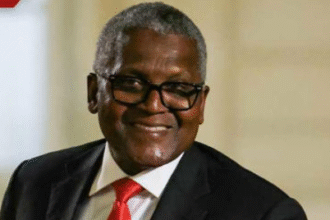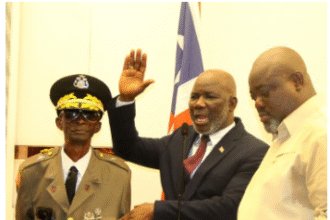ABUJA, NIGERIA – President Bola Ahmed Tinubu has declared a state of emergency in Nigeria’s oil-rich River State, citing a surge in oil theft, pipeline vandalism, and related insecurity as the primary drivers. The announcement, made yesterday evening, has sent ripples through the nation, sparking debate about its necessity and potential impact.
River State, a crucial hub for Nigeria’s oil and gas industry, has been plagued by illegal bunkering, a euphemism for crude oil theft, for years. However, recent reports indicate a significant escalation, impacting both the nation’s economy and the environment. The Nigerian National Petroleum Corporation Limited (NNPCL) estimates that Nigeria loses billions of dollars annually due to these activities, further straining the country’s already fragile finances.
The President’s declaration outlines a multi-pronged approach to address the crisis, including:
- Increased Security Presence:Â Deployment of additional security forces, including military personnel, to patrol oil pipelines and facilities, as well as to combat criminal gangs involved in oil theft.
- Joint Task Force Enhancement:Â Strengthening the existing Joint Task Force (JTF) with additional resources, technology, and personnel, granting them broader powers to apprehend and prosecute offenders.
- Community Engagement:Â Launching a nationwide awareness campaign targeting local communities, emphasizing the devastating consequences of oil theft and encouraging them to report suspicious activities.
- Socio-Economic Development Initiatives:Â Implementation of targeted socio-economic programs in affected communities, aimed at providing alternative livelihoods and reducing the incentives for participation in illegal activities.
“The situation in River State has become untenable. The rampant oil theft is not only crippling our economy but also causing irreparable damage to our environment and threatening the security of our citizens,” President Tinubu stated in his broadcast address. “This emergency declaration is a necessary step to reclaim our resources, protect our people, and safeguard the future of our nation.”
While the declaration has been welcomed by some, particularly those in the oil industry who have long called for stronger action, others have expressed concerns about its potential impact on civil liberties and human rights. Critics argue that the increased security presence could lead to abuses and that a more holistic approach focusing on addressing the root causes of the problem is needed.
“Simply throwing more soldiers at the problem won’t solve it,” argued Ken Henshaw, a local human rights activist. “We need to address the poverty, unemployment, and lack of opportunities that drive people towards these illegal activities. We also need to hold companies accountable for environmental degradation and ensure that local communities benefit from the oil wealth.”
The Rivers State Governor, Siminalayi Fubara, has pledged his full support for the federal government’s initiative, stating that his administration is committed to working collaboratively to restore peace and security in the state.
The declaration is expected to remain in effect for an initial period of six months, with the possibility of extension depending on the progress made. The effectiveness of the emergency declaration will largely depend on the government’s ability to address the underlying issues driving oil theft, while also ensuring respect for human rights and the rule of law. The coming months will be crucial in determining whether this bold move will ultimately succeed in curbing oil theft and restoring stability to the troubled oil-rich region.









